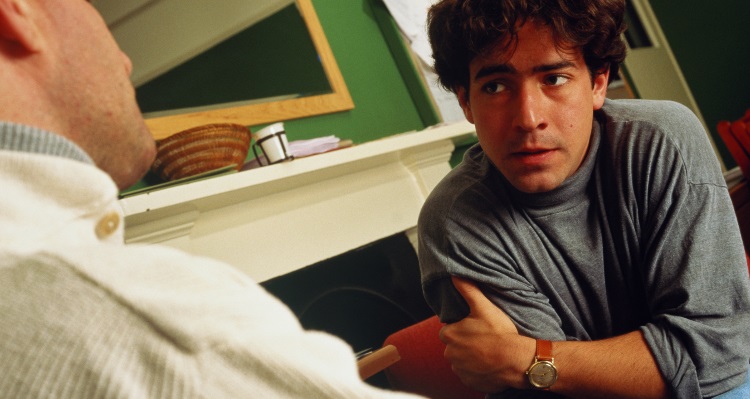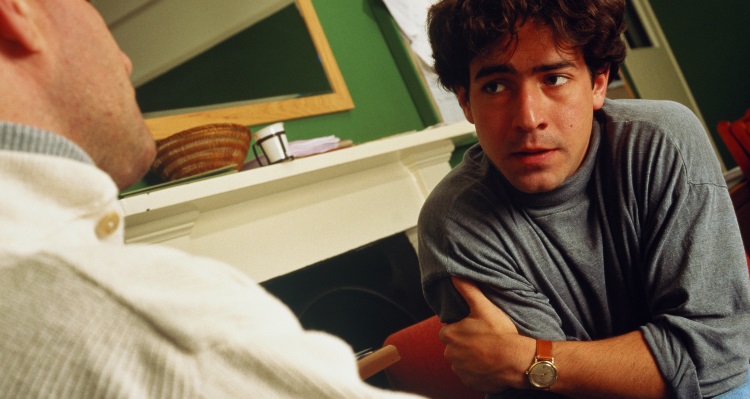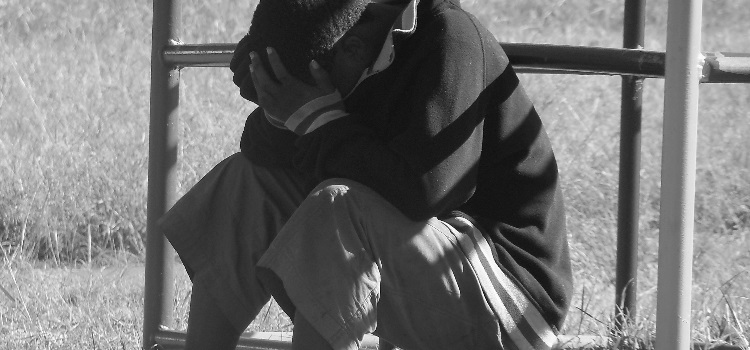
Relationships are complicated. That’s no secret. After time with family this holiday season, you are probably more aware than ever of this reality.
One of the most difficult paradoxes we tend to encounter in relationship is that of grace vs. personal responsibility.
When do we show grace – when do we extend mercy – and when do we let people sleep in the bed they’ve made?
Why is this an important question?
If you aren’t living squarely in the middle of this paradox, you might be wondering why this is an important question? What’s the big deal? Just extend grace and move on, right? Or, if you are more of a “boundaries” type, just let people deal with their own crap, right?
The importance of this question lies in the paradox.
We ALL need grace extended to us, and we ALL need to take personal responsibility for our lives.
In an environment where grace is constantly extended but consequences are never allowed, we end up with entitled individuals incapable of taking ownership for their lives.
In an environment where responsibility is touted in the absence of grace, we end up with broken, hurting individuals whose identity is based on performance.
So what do we do? How do we extend grace to someone without compromising their personal responsibility?
Mistakes Vs. Cycles
The first step is to understand the difference between a mistake and a cycle.
When someone makes a mistake, they are messing up in a way that isn’t characteristic of them. This isn’t the norm. This isn’t an every-week thing.
When someone is in a cycle, a dysfunctional behavior has become part of their identify and they will continue to behave in that manner until the root issues are worked out.
For example, let’s say your son has always been honest and transparent with you. Then one day, you find out that he got into debt, freaked out, and stole $2,000 from you.
This is a mistake. In my opinion, it’s a pretty big mistake. But at this point, it’s not a cycle, and how you respond will have a big impact on your son’s future behavior.
If you beat your son down with this – if you hold this over his head and stop placing your trust in him – you are actually empowering him to turn this into a cycle. You are treating him as if this mistake is who he is, and as a result, you are influencing him to make that mistake part of his identity. This treatment will push him towards becoming a legitimately dishonest person.
BUT if you extend grace – if you treat him as if this mistake is the opposite of who he is – you are empowering him to learn from this mistake and be restored into the trustworthy individual he has always been.
How you treat people you have relationship with will influence how they see themselves. If you treat them like thieving liars, you are empowering them to be thieving liars. If you treat them like trustworthy people of incredible value, you will empower them to become what you perceive them to be.
When a mistake is made, grace should ALWAYS be extended. This doesn’t mean you remove all consequences. In fact, I’d recommend that you refrain from cancelling consequences, as allowing certain consequences to play out can give people an appreciation for those consequences and build personal responsibility. You may decide to have your son pay you back rather than forgiving the debt.
But the key here is that you are relating to your son as trustworthy. Instead of creating extra cautions and checkups, you immediately begin giving him opportunities to restore trust and display himself to be the trustworthy person you see him as.
I want to make a special point here about sexuality
One of the most dysfunctional things I see in the church is the way people perceive and respond to expressions of sexuality.
For one, when it comes to our kids, we’ve linked their identity to their ability to inhibit their sexuality pre-marriage. We use illustrations like the crushed rose to tell our daughters that their worth is in their virginity, and consequently, the moment they lose their virginity, they become worthless in their own eyes and the eyes of their families.
THIS HAS TO STOP. This is NOT the Gospel.
Sexuality is so much more than virginity, and when someone compromises their purity, we have an opportunity as parents and extended community to make that compromise a mistake rather than a cycle.
When we extend grace – when we speak life and joy and hope – we empower those who have made a mistake to restore the standard, free from shame, and see themselves as pure, valuable individuals. When we respond with anger, disappointment or worse, we empower them to turn that mistake into an identity and to snowball that identity into a cycle of dysfunction.
When our son or daughter comes home and says, “We slept together” that’s your opportunity to extend grace, declare positive identity, and rebuke shame. Shame will do FAR more damage in their lives than the act of premarital sex ever could.
They will have to live with the consequences of intimacy outside of covenant and the heartbreak that can lead to. God set up covenant for a reason. But you can help protect them from turning a mistake into a cycle and identity.
How to deal with cycles
Unlike mistakes, cycles are a repeated behavior that gets attached to a person’s identity.
Dealing with cycles is far more challenging than dealing with mistakes, which is why I have been so adamant in my encouragement to not empower mistakes into cycles.
In a cycle, your son lies frequently, has stolen from you multiple times, and even when he seems to be doing good, he has trouble not being dishonest in some way or another.
And the problem here is that treating him as honest is actually HARMFUL for him. When you remove consequences or entrust something to him, you simply empower him to continue in his dysfunction.
In these situations, grace is still applicable, but it looks a bit different. Grace looks like always having an open door extended, but with healthy boundaries.
In other words, he is no longer welcome to be in your home unsupervised, but he is always welcome to come home and spend time with you. You are always there for him emotionally, but you have removed the financial safety net. You are always gracious to him, but you have enforced good boundaries.
This is where the power of prayer comes in, and potentially, the power of healthy counseling. Somewhere, there is a root issue that resulted in dishonesty being linked to your son’s identify, and he is not going to be free from this until that issue is dealt with and he finds inner healing. But he may not be willing to go there until, like the prodigal son, he becomes dissatisfied with the bed he’s made for himself.
By making his bed for him, you are simply prolonging his stay in dysfunction.
Conclusion
To summarize, we have to understand the difference between a mistake and a cycle.
When people makes mistakes, extend grace and treat them like the opposite of the mistake. Empower them to be amazing rather than influencing that mistake to become a cycle.
For those who are already in cycles, pray for them, keep an open door to your heart, and do what you can to help them deal with the root issue. Don’t empower their dysfunction by eliminating their consequences and providing a constant safety net.
Also, remember Holy Spirit is really amazing at dividing between soul and spirit, so stay connected with Him as you work with the person and above all else, keep loving.










This is a great post on the difference between a mistake and a cycle. I have found that trust from me is one of the things my teenagers long for the most. It is also one of the things they get most frustrated about when they do not have it.
I have tried to make a shift from “fixing and controlling” to trying to extend more grace and love. It is one way I am attempting to parent more the way that God parents me. So I have to ask myself, does God parent the way described above in the Conclusion? I believe He does, what does everyone else think?
Thanks for the great post, Jacob!
What you had to say about how your teenagers long for trust and grace from you and are frustrated when they don’t get, it kinda of grabbed my attention. You see I feel like I have been trying to get into my fathers good grace for years. Yet try as i might I still feel as though my acceptance from him is only based on my good behavior. How did you get from “fixing and controlling” to be more gracious and loving? Is it possible for me to get that in my own home? I mean I know I can’t fix him or whatever, but one might say I am at my whit’s end.
Rlavender21 – Thank you for your post. I appreciate that you are reflecting on this; it shows alot of thoughtfulness and maturity on your part. As far as how I got to a more gracious and loving place—and I am FAR from perfect–my pursuit of Jesus and development of my relationship with God has been everything. It got me to a place where I just thought “God shows tremendous forgiveness and grace to me everyday; His Son died for me and my sin..how dare I not show grace and forgiveness to my kids, yet enjoy the grace and forgiveness from God for myself? That got me to start trying to ” father” more like God father’s me. Is it possible for you to get that in your home? I do not know your specific situation, but “with God all things are possible (Matthew 19:26).” Prayer is a great place to start…Pray for your relationship with your dad. Pray for your dad as a brother in Christ who needs God, needs love, and needs forgiveness just like you do. Let him know in a calm and positive way that you are praying for him and your relationship with him. Above all, keep the lines of communication open with him–in a calm and respectful way. Even if you guys don’t agree, don’t stop talking-but do so calmly. If you share your heart calmly, it is more likely he will do so too, and perhaps even start to see some things from your perspective. And you also need to see things from his perspective; he loves you and wants the best for you, even though it may not feel like it sometimes. And God wants the best for both of you and loves you both. I will pray for positive progress in your situation. I welcome you to reach out to me through our website http://changedthroughfaith.com. You and your father might find the Resources page helpful and can contact me at Our Ministry/Contact us. -Blessings, Brian
I’m a twenty-something studying and writing on social philosophy and specifically examining how community and society work from a Christian perspective. This post is so encouraging to read, seeing cycles of anger, hatred, and judgment that have emerged in the Church. I am hopeful that the Church as a whole will begin to make this distinction in a more constructive and progressive way,
I think one of the more helpful aspects of your approach here is simply the ability to separate the identity of a person from their specific actions. It is impossible for someone to identify as anything but their mistakes if we do not teach them from the beginning that they are characterized primarily by the image of God and not the moments where they slip up. What we feed into the person is what they will use to construct their identity and their lifestyle, and it is what they will use to feed into those around them.
I’m glad to see this is on someone else’s mind as well.
how we treat folk is important esp when they mess up … but someone said that children respond to a system of risks and reward … letting them know what is at risk when they act up is very important no ?? the bible says that he who is often rebuked but does not reform will be cut off and without warning nuh !!! and the lord put it this way if I rebuke u and u do not listen are u really my sons or are u illegitimate babes ???
Very valuable distinction to make between mistakes and cycles. Certainly at times difficult to recognize when the transition has occurred from one to the next, but nevertheless necessary.
Another point I would like to add is that the grace that provides mercy and forgiveness to all that makes mistakes, is all the same grace that can empower us to not fall into cycles and be able to break ones we find ourselves in. I believe it is beneficial to remind those in our life (particularly those that know Jesus) that it is their personal responsibility to seek the power of grace to avoid cycles of mistakes, rather than just seek that grace after the mistake.
“By the grace of God I am what I am, and his grace toward me was not in vain. On the contrary, I worked harder than any of them, though it was not I, but the grace of God that is with me.” (1 Corinthians 15:10)
I loved your last major point about grace meaning having an open door, but still maintaining healthy boundaries. I can only imagine how difficult it would be to find the right balance between loving and supporting someone without enabling them while they were learning to deal with a cycle. This was an amazing article, and a great read. Thanks so much for posting!
Comments are closed.